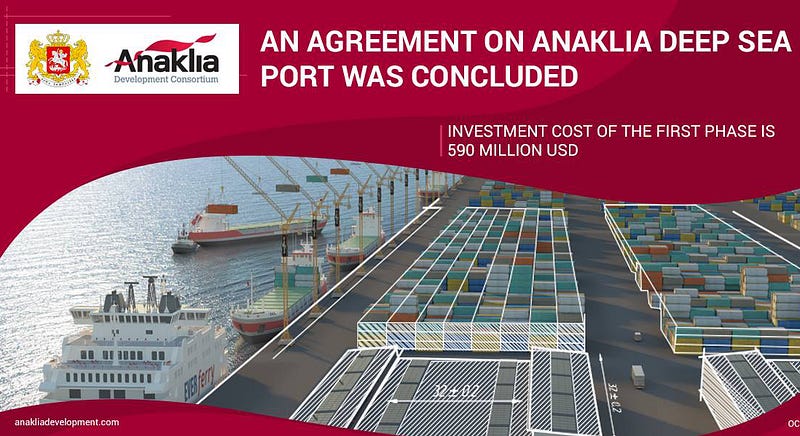Largest US Investment project in Georgia launches




The construction of a Deep Sea Port in the Black Sea coastal town of Anaklia will establish a new maritime corridor between Asia and Europe, helping restore the historic Silk Road and stimulating national and regional economic growth.
After two years of discussions, the company responsible for developing the mixed-cargo Deep Sea Port — Anaklia Development Consortium (ADC), signed an investment agreement with the Government of Georgia on October 3, 2016.




Construction of the Anaklia Deep Sea Port will be broken down into 9 distinct phases. The annual throughput of the port will be 100 million tons. The project is anticipated to create thousands of new workplaces. The port will encompass about 400 hectares of land and it will cost approximately 2.5 billion USD.
The Anaklia Deep Sea Port project is expected to be completed by 2020. Once fully operational, the multi-functional port will have the ability to receive Panamax and post-Panamax ships — the largest vessels with a cargo capacity of up to 40,000 tons.
As part of agreement, the Anaklia Development Consortium also receives the right to develop a Free Industrial Zone that will support the port’s operations and trade, and be home to local and international entrepreneurial initiatives. It will be administered with a tax-free regime to incentivize shipping companies, manufacturers, businesses and employees to relocate and use the port.




The Anaklia Development Consortium is a consortium of TBC Holding LLC from Georgia and Conti International LLC from the United States. TBC Holding founder Mr. Mamuka Khazaradze is also the Founder and Chairman of TBC Bank JSC. Conti International LLC is a US-based major developer of infrastructure and capital projects.
Located on the eastern edge of the Black Sea, Anaklia is strategically positioned on the shortest route from Asia to Europe. Anaklia’s Port is poised to revitalize the Caucasus and Central Asia regions by opening up trade routes for neighbors and landlocked nations such as Armenia, Azerbaijan, Kazakhstan, Uzbekistan, Turkmenistan, Kirgizstan and Tajikistan. Access to these countries is limited and infrastructure development in Anaklia will provide the most efficient and safest route to millions living in Central Asia and the Caucasus.
